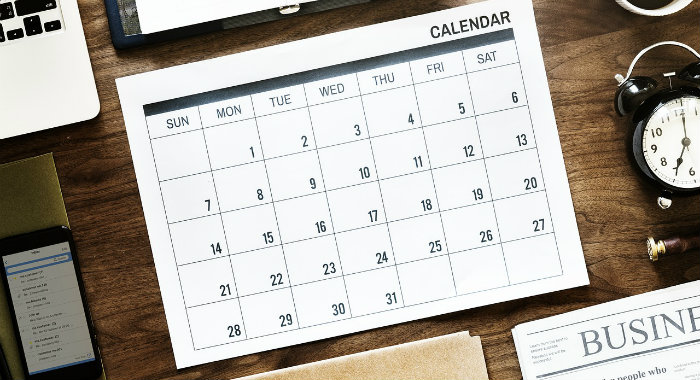Putting your property on the market is a big step, and with the amount of money that changes hands, it’s vital you know the best questions to ask your estate agent when selling a property.
By asking the right questions at the right time, you’ll help to ensure you choose the best estate agent. More than that, you’ll also ensure that your property has the best chance of selling for its true value.
So, to make sure your property sale goes smoothly, we have brought together our experiences to create our guide to the best questions to ask your estate agent when selling a property in the UK:
Q1: How Much Do You Charge?
Even if you’re more concerned about selling your home rather than how much it costs, it’s still important to know how much you’ll need to pay your chosen agent.
By knowing this, you’ll be able to ensure you have the money available when it’s due, and you’ll know how far your budget stretches for your onward purchase.
Remember that most traditional high street agents work on a commission basis. That means you’ll pay a percentage of the final sales price of your property, typically between 1-3%.
Most online estate agents work on a fixed-fee basis, meaning you pay the same amount regardless of whether your property sells for £90,000 or £900,000.
There are advantages and disadvantages to both pricing structures. Commission-based prices tend to work best for lower value properties and give the estate agent a small incentive to sell your property for more money.
Fixed-fee prices tend to work better for higher value properties and give you more certainty over exactly how much the estate agents bill will be.
To ensure you get the best estate agent for the right price, we recommend getting several different estate agents in for a quote. Whenever we sold a house we got 3 to 4 estate agents to quote and used a mixture of online estate agents and traditional high street agents.
We found that this is a good strategy to find out which is the best one for us for the right price.
Our Top-Rated Online Estate Agents:
| Estate Agent | Cheapest Package | 'No Sale, No Fee' | Our Rating | Review | Official Site |
|---|---|---|---|---|---|
 | £999 | £2,399 | 9.6 | Read Review | Visit Website |
 | FREE | FREE | 9.5 | Read Review | Visit Website |
 | £295 | £895 | 9.2 | Read Review | Visit Website |
Q2: When Are Your Fees Due?
Now to our second of the 15 best questions to ask your estate agent when selling a property. Find out from the estate agent when you will have to pay their fee.
In the case of fixed-fee estate agents, you’ll sometimes have the option to pay on completion (i.e. once your property has successfully sold) or pay upfront (i.e. before the property is even listed on the market).
If you choose to pay upfront, it’ll usually be a bit cheaper than paying on completion. But remember, paying upfront means you’ll pay regardless of whether your property sells or not.
Therefore, it’s your choice whether you’re willing to take the risk of potentially spending money and not selling your home.
If you’re paying a percentage fee via a commission-based estate agent, you’ll almost always only pay once your home is sold as the fee will be based on a percentage of the final sales price.
Ultimately, a lot depends on your attitude towards risk, how sure you are you want to sell your home, and the current market conditions.
When there’s a lot of demand, you might find it easier to take the risk to use an upfront pricing model and save some cash. When demand is slow, you might prefer the lower risk option of ‘no sale, no fee’.
Whichever type of estate agent you choose, it’s always worth checking EXACTLY when your payments are due, so you know where you stand.
Q3: Have You Sold Any Other Properties In The Area Recently?
Before choosing to go ahead with an estate agent, you want to be sure they are active in your local area and know the market well.
Ask them if they have sold any other properties nearby in the last few months. Ask which ones if they say they have.
This isn’t a deal-breaker question. Just because an estate agent hasn’t sold any properties near to you, it doesn’t mean they are necessarily bad.
It may just be that they are expanding into new areas or your local market is a little flat and so the opportunities haven’t come up.
However, an estate agent who has sold local properties may have an advantage. They’ll likely have a list of people who viewed the other properties – in other words, potential buyers who they know have been looking for properties in your area.
They are also more likely to have their fingers on the pulse and understand the likely demand and selling price of your home.
We found that it is always an advantage to use an agent that knows your area. An agent that knows your area will be better able to value your property correctly.
We have had quotes from agents that didn’t have the local knowledge over the years and most of them either over- or undervalued our properties. That’s why this is one of the best questions to ask your estate agent when selling a property.
Which Online Estate Agency Is Right For You?
Answer 5 simple questions to get a personalised recommendation:
Q4: How Much Is Our Property Worth?

When contacting any estate agent to enquire about selling a property with them, you should always request that they conduct a valuation of your home.
This should not cost you anything and should never come with an obligation to use that particular agent.
However, it will start to give you a clear picture of how much your property may fetch. Ideally, look to get valuations from at least three separate agents before deciding how much to list your home for and which estate agent to use.
Keep in mind that estate agents operating on a commission-based fee are more likely to value your home higher to maximise their commission. Those operating on a ‘no sale, no fee’ basis may be more likely to undervalue your home to increase the likelihood you’ll find a buyer.
It’s good, therefore, to take valuations in context with any vested interest the agent may have in selling your property high or low.
Ultimately though, most estate agents (high street or online) will aim to give you as accurate a valuation as possible. If in doubt, you can always start a little higher to gauge interest and slowly reduce until you find the sweet spot.
Selling A Property? FREE Step-By-Step Platform
Q5: What Are Your Opening Hours?
You need to consider opening hours from two viewpoints. Firstly from your own convenience of being able to discuss viewings and offers with your agent. Secondly, from the point of view of potential buyers who will need to arrange viewings, etc via the agent.
In general, online estate agents tend to offer longer opening hours via call centres. This has the advantage that both you and your potential buyers can discuss your property with the agent on evening and weekends when high street agents are often closed.
On the other hand, high street estate agents have physical offices both you and your potential buyers can visit. This allows face-to-face contact with the estate agent, which some buyers and sellers prefer.
Again, there’s no clear winner as to which is best; it depends entirely on whether face-to-face contact or longer opening hours are more important to you. But it’s worth knowing, so that’s why it’s on our list of the best questions to ask your estate agent when selling a property.
We found that online or hybrid agents do have a slight advantage. When we sold one of our homes with Yopa, what we liked best was the online portal. This allowed potential buyers to book viewings 24/7.
We were also able to communicate with interested buyers directly via the portal. At the same time, our local agent was always just a phone call or a text message away and not just during working hours.
Q6: When Will You Conduct Viewings?

Before you successfully sell your property, it’s likely that several viewings will need to be conducted.
Typically, people will view a property between two and four times before putting in an offer.
If you’re using a high street estate agent they will probably want to conduct viewings themselves, at least during their normal office hours. Out of hours, they may expect you to conduct your own house viewings.
Most online estate agents will expect you to conduct all of your own viewings, though many now offer hosted viewings as an optional extra.
Either way, check when the estate agent will be able to conduct viewings and when you would have to conduct your own.
Remember that many house hunters will want to view properties on evenings and weekends (we’ve found the majority of viewings are evening and weekends). Having an estate agent that can cover such appointments means you don’t need to arrange your entire social life around them.
On the other hand, we found that conducting your own viewings will actually help you sell your property faster. That’s because you know your house inside-out, so you can tell potential buyers what it’s like to live there.
An estate agent won’t do that, so we would recommend that you do your own viewings.
Q7: How Quickly Can My Property Be Up For Sale?
Not all estate agents work as quickly as each other.
Before your property hits the market, it’s likely you’ll need photographs taking and a property description writing up. You may even need an EPC.
Asking your estate agent what their typical lead time is for getting a home up for sale will help you avoid any unexpected delays.
In our experience, anything from 3-5 working days is typical, though we’ve had as quick as 1 working day and as slow as 2 weeks, so it’s always worth asking.
Especially if you are in a hurry, it’s vital to know how quickly they can act. That’s why we put this question on our list of best questions to ask your estate agent when selling a property.
Q8: Where Will My Property Be Listed?

Nowadays, it’s essential that your property is listed for sale on at least one of the major online property portals.
According to a report by Zoopla, only 9% of house hunters start their search at high street estate agents.
Meanwhile, 57% used an online property portal. That means you need to check your estate agent is able to get you listed on sites such as Rightmove, Zoopla, and OnTheMarket.
Rightmove, in particular, is a big one, but we’ve seen that many estate agents have stopped offering Rightmove as a listing option. This is because Rightmove charge the estate agents bigger fees than other property portals.
Our advice would be to carefully consider whether the risk of not being seen on the main property portal used will affect your ability to sell at your asking price if you are considering any agents that don’t offer Rightmove listings.
Keep in mind that only registered estate agents are able to list properties on such portals, which is one big reason for not trying to sell your property without an estate agent.
Q9: How Long Will You List My Property?
Once your property is on the market, it won’t necessarily stay there indefinitely until sold.
Most estate agents will list your property for a minimum of 6 months (or until sold, whichever happens sooner). But, after that, the process will depend on the agent.
In most cases, agents who are working on a ‘no sale, no fee’ agreement will be happy to continue advertising your property. After all, they don’t get paid until your home is sold.
However, most agents who charge upfront fees will only list your property for a maximum amount of time. If it doesn’t sell within that timeframe, you may need to pay again.
This was one reason we went with a ‘pay on completion’ option when trying to sell our previous home that had a non-standard layout. We knew that may mean it takes longer to find a buyer.
Therefore, it’s important to be clear with your chosen agent exactly how long they will actively market it for and what happens after their initial advertising timeframe has elapsed.
Q10: Are We Tied In For A Minimum Amount Of Time?

Many estate agents will ask you to sign a contract that ties you into listing your property for sale exclusively with them for a minimum amount of time.
This is most common with ‘no sale, no fee’ agents as they need to ensure they are given the time to find you a buyer. Agents that charge upfront are less likely to hold you to minimum terms since they get paid regardless of whether they find you a buyer.
Checking whether there is any minimum term and, if there is, how long it lasts is good practice before choosing your agent.
We found that this is something that only tends to become an issue when you encounter problems. If the estate agent isn’t very good, and you feel that they aren’t doing what they are supposed to, you might be stuck with them for the agreed amount of time.
Or, you have to take your home off the market until term has passed, and you can use another estate agent. This can delay the whole process, which is frustrating and annoying.
Q11: How Best Can We Stage Our Home For Viewings?
Your estate agent isn’t just there to list your property for sale. They are there to help you find a buyer.
That means when they visit your property, they should be happy to provide advice on what you can do to help attract more interest.
This could mean adopting a more neutral colour scheme, removing clutter or personal photographs, or getting those odd jobs done you’ve been putting off for months.
Ask potential estate agents what you can do to make your home more appealing to buyers: the ones who give the best answers are more likely to put the effort into selling your home for the best possible price.
You can also use our guide to 101 ways to sell your property faster for more inspiration.
In our experience, there is a lot that you can do to make your home more attractive to buyers. And even if you think your home is perfect as it is, there are always things that can be done.
We found that it’s good to listen to an estate agent when it comes to making changes. And don’t feel offended. They have a lot of experience and listening to them can help you sell your property faster.
Q12: Can You Handle Offer Negotiation And Sales Progression?

The role of your estate agent shouldn’t end with just finding you interested buyers.
When you receive an offer, a good estate agent should be willing to help you negotiate for the best possible price.
Once you’ve accepted an offer, a good estate agent should be happy to oversee the sale right through to completion. That means regularly chasing all parties in the transaction to ensure the sale is completed as quickly as possible.
Check that any estate agent you are considering using provides both offer negotiation and sales progression services.
We have experienced a sale where the sales progression was practically non-existent. The estate agent we used had a sales progression team, but we only had one email from them. We quickly realised that we weren’t going to get much support from them.
Thankfully, we had a good solicitor and a good relationship with our buyer, with whom we were in direct contact. While it didn’t impact us too much, it meant we had to be very hands-on to push through the sales.
We recommend checking reviews of any estate agent you are looking to engage to see if their sales progression support is up to scratch.
Q13: Can you Recommend Surveyors, Solicitors, Removal Firms, Etc?
This shouldn’t be a deal-breaker, but it can often be useful if your estate agent is able to recommend local professionals to help you complete your move.
This could be surveyors to check for problems on your onward purchase, solicitors to help complete your sale, or removal firms to get you out of the current property and into the new one.
Receiving recommendations in this way can save you time. However, it’s also likely your agent will have a good relationship with the firms they recommend. This can mean they will find it easier to chase them when necessary during the sales progression process.
We found that often, but not always, the local professionals recommended by an estate agent tend to be good. That’s because if a client has issues with any of the recommended services, it will reflect badly on the estate agency.
That said, if you have friends or family who have recently moved house, we would ask them for recommendations too. After all, they have actually used them, unlike the estate agent.
Q14: Do You Receive A Commission For Recommending External Firms?

If you do ask for recommendations of other services from your estate agent, check whether they receive a commission for doing so.
It’s fairly common practice that they will, it’s one of the ways estate agents bump up their earnings from each client.
However, if the agent is receiving a kickback for recommending a company, you need to factor in that it’s not an ‘independent’ recommendation. In that case, you’d be well advised to check external reviews of the company to get an unbiased opinion.
In our experience, some estate agents will partner up with other professionals based on how much of a commission they get. And that doesn’t necessarily mean that they are the best ones.
In fact, some are quite bad. One of our buyers used the solicitor recommended by the estate agent they used to sell their property. And the solicitor was a nightmare.
They were slow to reply to communications from our solicitor and kept sending through the same enquiries without mentioning what the issue with the reply was.
Luckily, our buyer was hands-on and whenever we contacted him with an issue he resolved it quickly. Although at one point he did say that he was really frustrated and wished he’d used a different solicitor!
When we checked, we saw that his chosen solicitor had quite bad reviews on Google. This just goes to show that it’s important to check independent review sites, such as Google or Trustpilot, even if it’s a recommendation from your estate agent.
Q15: Can I See A Copy Of Your Contract Upfront?
Whenever you choose an estate agent you’ll be asked to sign a contract. This will set out the terms upon which you are instructing them to sell your property.
As well as detailing the fees you’ll pay and when they’ll be due, it will also set out any conditions that are attached, such as minimum terms or exclusivity agreements.
It’s important to read the contract thoroughly before signing it, so you understand exactly what your responsibilities and commitments are.
Check also which of the two main membership bodies the estate agent belongs to, The Property Ombudsman (TPO) or the Property Redress Scheme. This will come in handy should you need to make an official complaint about your chosen estate agent.
So, How Do You Choose A Good Estate Agent?
There are many questions which you can ask an estate agent before instructing them that will help you decide if they are a good choice for you.
The questions above are some key things you’ll want to uncover, though there’s often no right or wrong answer.
It’s more about deciding what’s important to you and what isn’t. For example, do you prefer to save some money by paying upfront, or do you prefer the security of knowing you’ll only pay if you sell?
The main thing is that you uncover as much detail as possible about the agents you’re considering so that you can make an informed choice.
Don’t forget, you can also ask friends and family for recommendations and browse estate agent reviews before you make your final decision.





